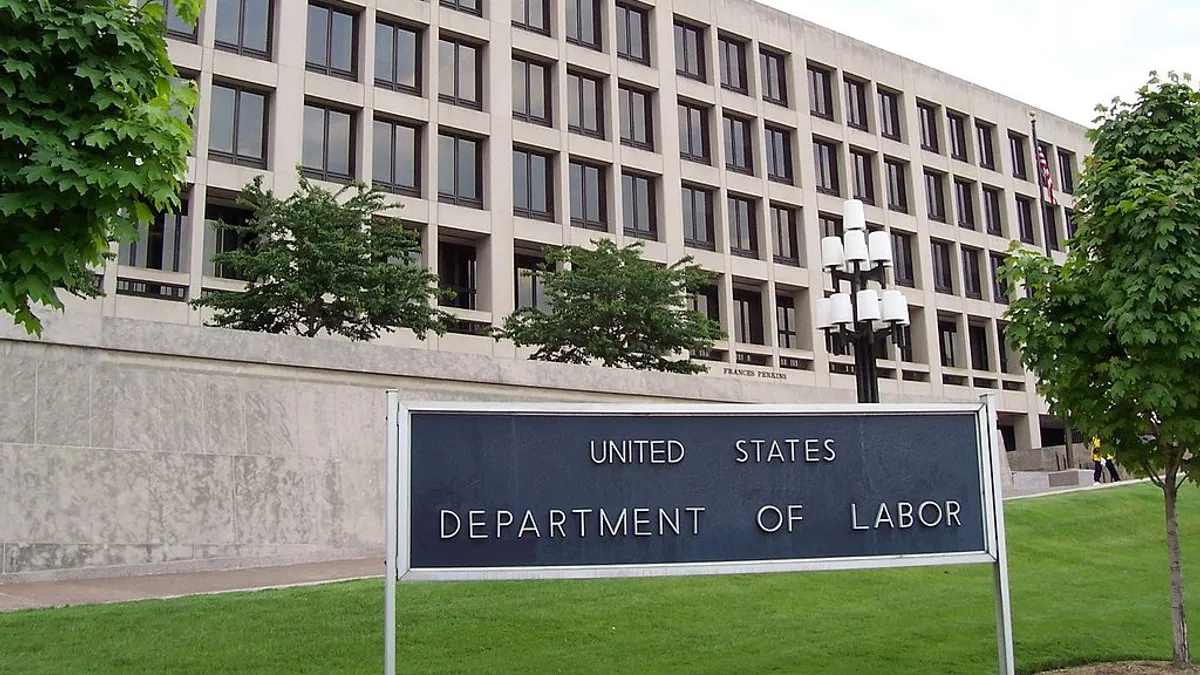Dive Brief:
- The U.S. Department of Labor (DOL) has announced the availability of $100 million in grants for training and career services for workers displaced by "major economic dislocations." Trade and Economic Transition National Dislocated Worker Grants will be offered to "dislocated workers seeking reentry into the workforce, and increasing their skill levels to become competitive for growing or high-demand employment opportunities."
- Three events can qualify an applicant for funding: job loss or reorganization due to automation or trade; loss, major structural shifts or significant decline in a primary or legacy industry due to trade or economic trends; or economic transition or stagnation that puts mature workers at risk for unemployment or lower wages. Fundable activities include training for fast-growing employment sectors or training for infrastructure-building projects, including transportation and communications industries.
- DOL is offering up to $8 million for each award, available to states, local workforce development boards and other entities. It will accept applications through Sept. 7.
Dive Insight:
This is far from the Trump administration's first move to encourage training and upskilling in the American workforce. In July, it asked top U.S. organizations to cosign a "Pledge to America's Workers," which was followed by an executive order fleshing out the steps for the training initiative. The order set up two new entities, the President's National Council for the American Worker and the American Workforce Policy Advisory Board.
Experts who spoke with HR Dive said employers can expect the administration to remain active in this area, but employers and legislators also will need to continue their efforts as they prepare for shifts in the labor market. A recent report from the Council of Economic Advisors recommends government, educators and employers work cooperatively to bridge the skills gap pushing so many Americans out of the workforce.
Apprenticeship programming is another avenue the administration is touting as a means to retrain and re-employ workers, with funding added to existing allocations and a reduction in the amount of government monitoring for programs.
The efforts seem to go hand-in-hand with the White House's immigration policies. A tightening of H1-B visa awards for this year and into the foreseeable future may well compel employers to upskill American workers. Enforcement has moved in this direction, too. The U.S. Department of Justice recently, for the first time, prosectued a company that allegedly defied President Donald Trump's Buy American Hire American order, and is working with DOL to continue its crack down on companies that pass over American workers in favor of foreign nationals.













